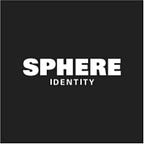Identity and the Refugee Crisis
The world’s refugee crisis has risen to a staggering scale. War, persecution, famine and global environmental issues have displaced more than 68 million people; every two seconds, someone is forced to leave their home.
Most refugees arrive at camps without any form of identification. As a result, it falls on the Humanitarian Aid Organisations to register and identify people in the interim. These independent information databases tend to get siloed within organisations, impacting the delivery of much-needed relief.
Self-sovereign identity systems are user-driven and portable, so identity information can be made easily accessible, as required. Also, the ownership of identity remains right where it belongs — with each person.
The Loss of Identity
According to the United Nations High Commissioner for Refugees, 44,000 people become displaced every day. As they’re often required to leave with little to no preparation, many arrive at camps without identification documents. Some lose their papers during the arduous journey to safety, and others belong to the billion-strong group who have never held any proof of identity.
In many countries, proving one’s identity is near impossible. A US State Department report on human rights in Syria found that the Syrian government often denies its citizens passports and other identification documents. Refugees from Syria lack an identity by default, which leaves them utterly helpless.
After the collapse of Somalia’s previous government, identity documents were unobtainable for citizens. Even now, with a Federal government in place, a National ID card can only be issued in the capital city, after an expensive process and a month-long wait.
Identity is intrinsic to accessing basic human rights, and scores of people are left stranded without it.
The Management of Identity
Digital technologies play a key role in the delivery of relief, where the identification of persons is concerned. To manage this, relief organisations develop systems and processes, but often independently. As information cannot be easily shared with other organisations, isolated records are created, causing one person to have multiple identities, hindering access to aid.
The distribution of funds through mobile payment systems promises to empower people to rebuild their lives. However, the GSM Association found that refugees often aren’t able to access this vital resource. International Know Your Customer (KYC) criteria requires a valid identity document to be presented to activate a SIM card or mobile money service.
The UNHCR has launched an initiative that could alleviate this situation — at least within the projects it oversees. Population Registration and Identity Management Ecosystem, or PRIMES, is a collection of information services that promises the refugees a recognised, legal identity tied to a biometric ID card. UNHCR and its partners will use this centralised system to deliver their services.
However, any centralised system has a high risk of data breaches, and those developed by UNHCR and other aid organisations are no exception. The privacy of personal data is a major concern. Rigorous security processes must be put in place to protect refugee identities.
The Self-Sovereign Solution
Humanitarian aid agencies work tirelessly to deliver timely relief and support to displaced people. By empowering refugees with control of their own identity, many of these issues can be resolved.
Self-sovereign identity follows a distributed approach to identity management. Rather than storing information on a centralised server, a self-sovereign system uses blockchain-based distributed storage. Based on open standards, it fosters interoperability, and allows an entire ecosystem to build identity-dependent services. Simultaneously, each user controls who can access their personal information.
To meet the need for reliable information, Sphere Identity has designed a free Personal App. Refugees can use it to scan and save the documents they possess. They can have immediate, access to their records whenever they need it. Security and privacy are built-in features of the Sphere Identity solution.
Refugees flee from unspeakable hardships and nurture the hope of a better future. The ability to prove one’s identity can make the difference between getting help and being helpless, between asylum and abandonment, and quite possibly, between life and death.
